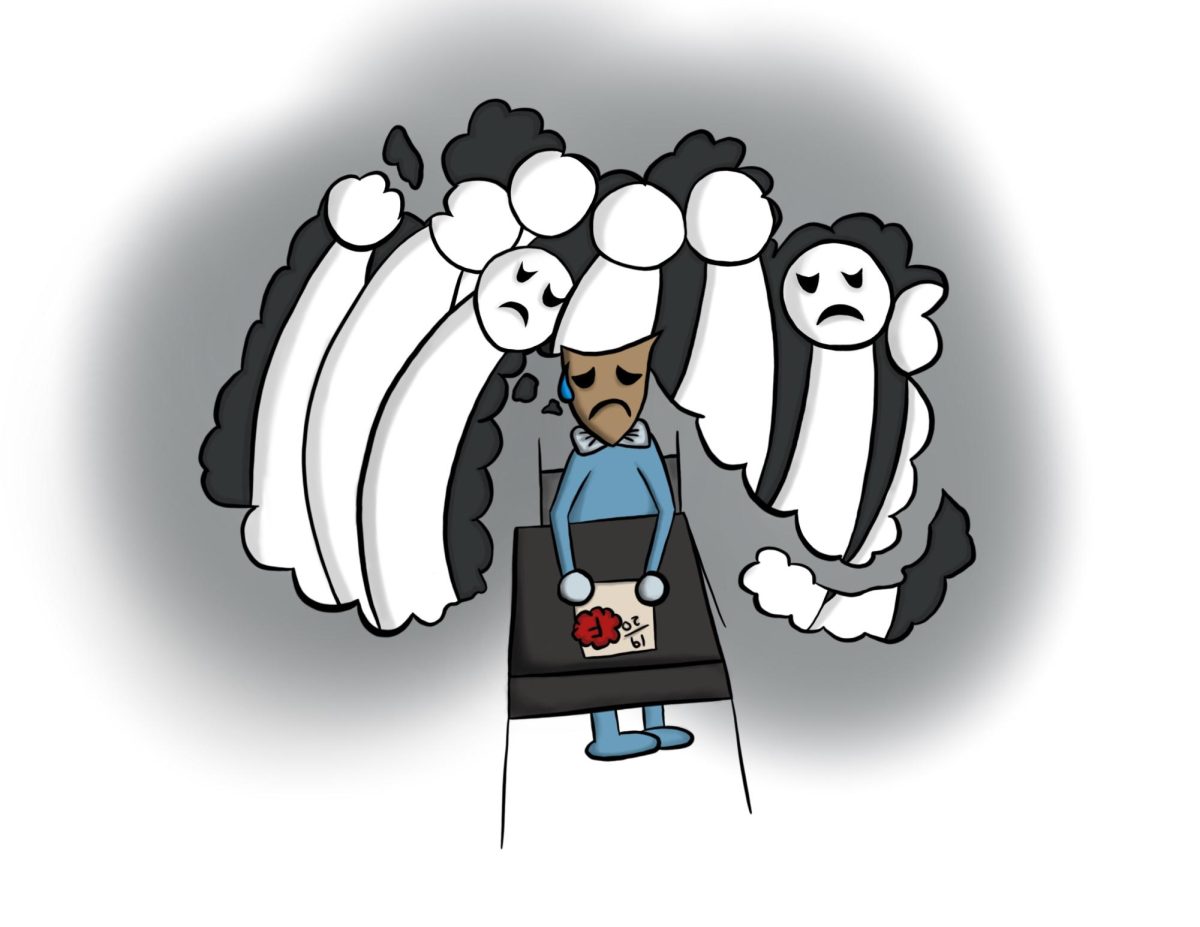Imposter syndrome is a psychological health phenomenon that causes individuals to question their own skills, intellect and success, according to the National Library of Health Medicine. People experiencing imposter syndrome are unable to internalize their achievements, and they fear that their work and success is fraudulent. This phenomenon can lead to the development of depression, anxiety and self-doubt.
Junior Ralitsa Akker* (she/her) defines imposter syndrome as wanting to be the best version of yourself, but never being enough. Akker said she began experiencing imposter syndrome when she became a more competitive gymnast.
“When I started doing competitive gymnastics, that’s when this competitive mindset came in. Like you have to be the best or else it isn’t good enough.” Akker said, “It was a little bit toxic at times, because there was always this both direct and indirect comparison between athletes,”
Senior Lucretia Ventura* (she/her), an IB Diploma student, said that the COVID-19 pandemic and the remote learning during it had a very big impact on her imposter syndrome. She said that seeing peoples’ academic growth after online learning resulted in her current self-conscious mindset.
“I always compare myself to my peers,” Ventura said. “I always compare their successes to mine. Not really who they are as a person, just overall.”
Ventura said imposter syndrome is very common among her peers, and that most people compare themselves in an unhealthy amount. Akker said she frequently compares her work with her fellow students, causing her to feel insecure about her own work and grades. Junior Domna Hart* (she/her), another IB Diploma student, also struggles with imposter syndrome at school.
“Earlier in the year, I felt like — going into IB classes — I did not feel prepared going in. I would always feel like I’m not smart enough to be here, especially in a lot of my math classes,” Hart said.
Ventura said she experiences imposter syndrome from time to time, and that she feels out of place with her peers.
“It kind of comes and goes, but for me personally, it feels as though that I depend more on people than I do stuff myself, so all of my success is based on those around me and not really me, myself,” Ventura said. “I always feel like my achievements are not really mine.”
Ventura said that her imposter syndrome has intensified in high school partially due to the increased need students feel to stand out as they start applying to colleges. Hart said she finds herself being affected by imposter syndrome in all areas of her life.
“I really felt like I didn’t deserve to be in the classes and the programs that I was in. I feel it in one part of my life, like really heavily. It bleeds into everything else,” Hart said.
Specifically, she said she felt imposter syndrome when she got the leadership position in her extracurricular activity, because she didn’t feel qualified enough to lead her team. She said the self doubt and pressure has hurt her mental health.
“It’s very consuming sometimes. It’s exhausting, never feeling like you’re good enough and feeling like you’re disadvantaging other people by being in a position,” Hart said. “I think it’s most tiring and mentally draining for me if I’m in a place of leadership.”
To cope, Hart said she turns to her family, who she feels will unconditionally accept her as she is. She said that her family is where she can freely feel her emotions and not be pushed down. Similarly, Ventura also relies on her family for support when she is struggling.
“I feel like my family is just really supportive, and they keep on reminding me that as long as I grow, everything will be alright,” Ventura said.
Despite the struggles of imposter syndrome, Ventura encourages herself and others to keep looking ahead and to stop comparing yourself to others.
“As long as you keep on growing, you’ll eventually surpass (yourself),” Ventura said. “You’ll be better than you were before, and I think that’s the most important thing.”
Dealing with imposter syndrome can be difficult, but know that you are not alone. The American Psychological Association has a list of ways to cope with imposter syndrome:
Focus on the facts that support you being where you are
Understand that getting to a position of success is the result of long hours of hard work and effort
Talk about your feelings
Free yourself from perfectionism
Acknowledge your failures
Celebrate your accomplishments
Develop self-compassion
Visit the American Psychological Association’s online website for more information about imposter syndrome.
Mental Health Hotlines Teen Link: 866-833-6546
Suicide and Crisis Lifeline: 988











